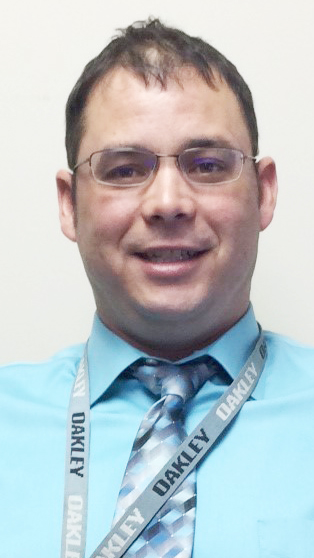Army tours transform small-town Chickasaw into experienced vet

This article appeared in the August 2017 edition of the Chickasaw Times
For Chickasaw citizen Mishontaumbby (Mish, for short) Rochelle, enlisting in the U. S. Army provided many firsts for a young, small town Oklahoman trying to find his place in the world.
“I grew up in Sulphur,” Mr. Rochelle said. “It was my first time on an airplane and my first time away from home.”
He would soon add visiting foreign countries and even staying in a palace to his growing list of military firsts.
Before becoming a world traveler, though, stood boot camp.
“They put you on a plane and tell you to get there,” he said.
“There” was Fort Benning, Georgia, where it quickly became obvious he was expected to grow up in a hurry.
“It was pretty interesting, to say the least,” he said. “We flew into Atlanta where we were met by in-processing people who told us if we wanted to smoke or anything else to go outside because the buses would be there soon. We all went outside and about that time the buses pulled up. They made everyone get on the bus and once we got off it was a different experience.”
In other words, no more Mr. Nice Guy.
Upon completing weeks of grueling basic training, Mr. Rochelle was set to start the next phase of his military career in the field he had selected upon first signing up – learning how to be a single channel radio operator, providing satellite communications to troops, companies and brigades to ensure they can all talk with each other.
This responsibility required security clearance and upon receiving it he entered yet another phase of training - learning how to safely jump out of airplanes. Mr. Rochelle admits he wasn’t gung-ho about the idea until the recruiter mentioned a $3,000 bonus would come his way for agreeing to attend airborne school training.
“They start you off slow,” he said. “They teach you how to hold your knees, ankles and arms so you don’t break something. You go from jumping off boxes to eventually jumping off a 250-foot tall tower with a parachute. Also, there was a bunch of running to get us in shape.”
He said trainees jump five times from an airplane at 1,200 feet. Even those performed in broad open daylight are referred to as night jumps.
“They call it night jumps because everyone closes their eyes,” he said.
Next stop was Fort Bragg, N.C., to join the 112th Signal Battalion, Special Operations Battalion, where he eventually deployed to Mali, Africa to set up communications for troops there.
After four years, he was ready to get back to civilian life but the idea of moving to Tampa, Florida, to MacDill Air Force Base persuaded he and a buddy to stay in an additional three years. From there they were deployed to Afghanistan, Qatar and eventually Iraq where he ended up operating and being housed in one of Saddam Hussein’s fabled palaces.
Not that he and his fellow communications specialists were tempted to get lost in the splendor.
“There were constant mortars and rockets coming in. Especially at night, you could see the rockets,” he said.
Later, he worked for Special Operations Command Central General Gary Harrell.
“I went with him and set up his personal communications so he could make secure calls and get a secure internet. We were never in one place a whole lot. We were always going somewhere.”
This took Mr. Rochelle to several countries in Europe and some other locales he can’t talk about because the missions are still considered classified.
Upon getting out of the Army in 2006, he worked odd jobs while earning a college degree in information security from the University of Phoenix. His first stint with the Chickasaw Nation was with Lighthorse Police as an applications support specialist.
He left for seven years to work as a civilian employee with Tinker Air Force Base in information security and later at Fort Sill in the same field as a manager.
In 2013 he rejoined the Chickasaw Nation workforce and today is a senior security information auditor with the responsibility of auditing policies and procedures to the tribe’s information technology department.
He says the Chickasaw Nation is more than a great place to work.
“It’s outstanding,” he said.
Mr. Rochelle and his 9-year-old daughter and two 3-year-old twin boys reside in Sulphur.